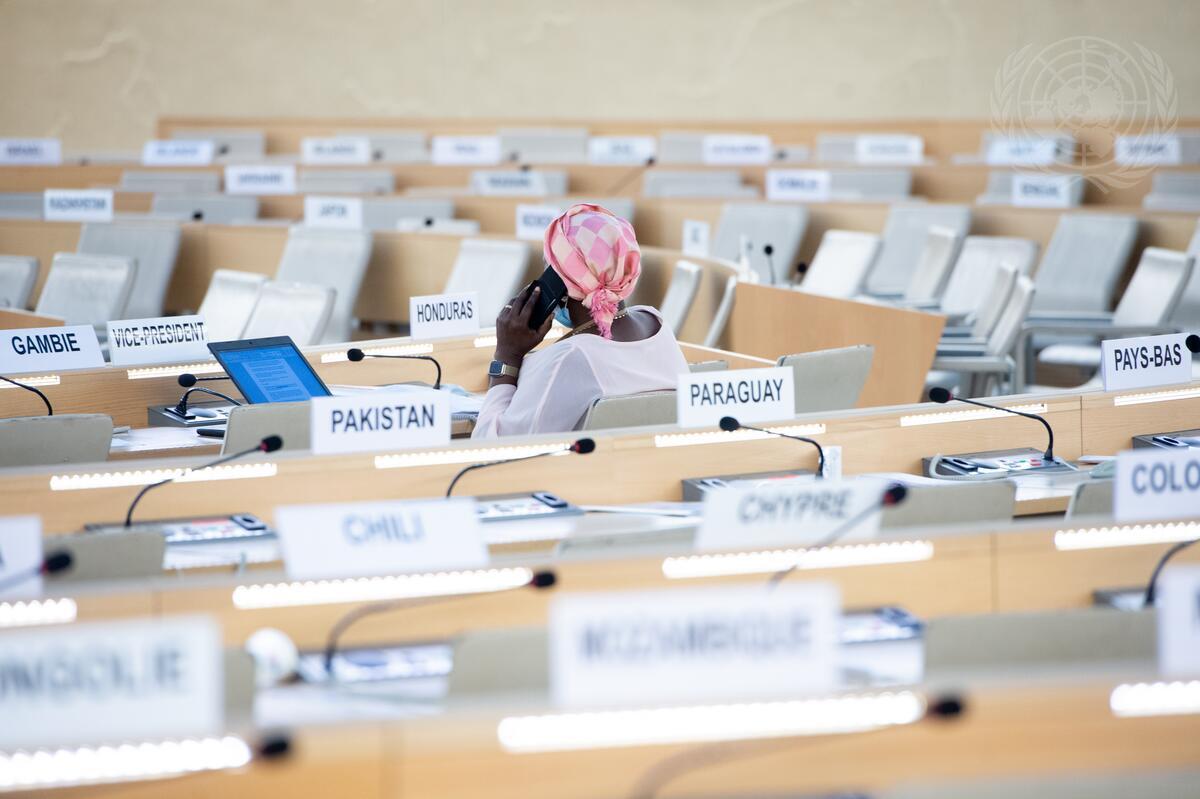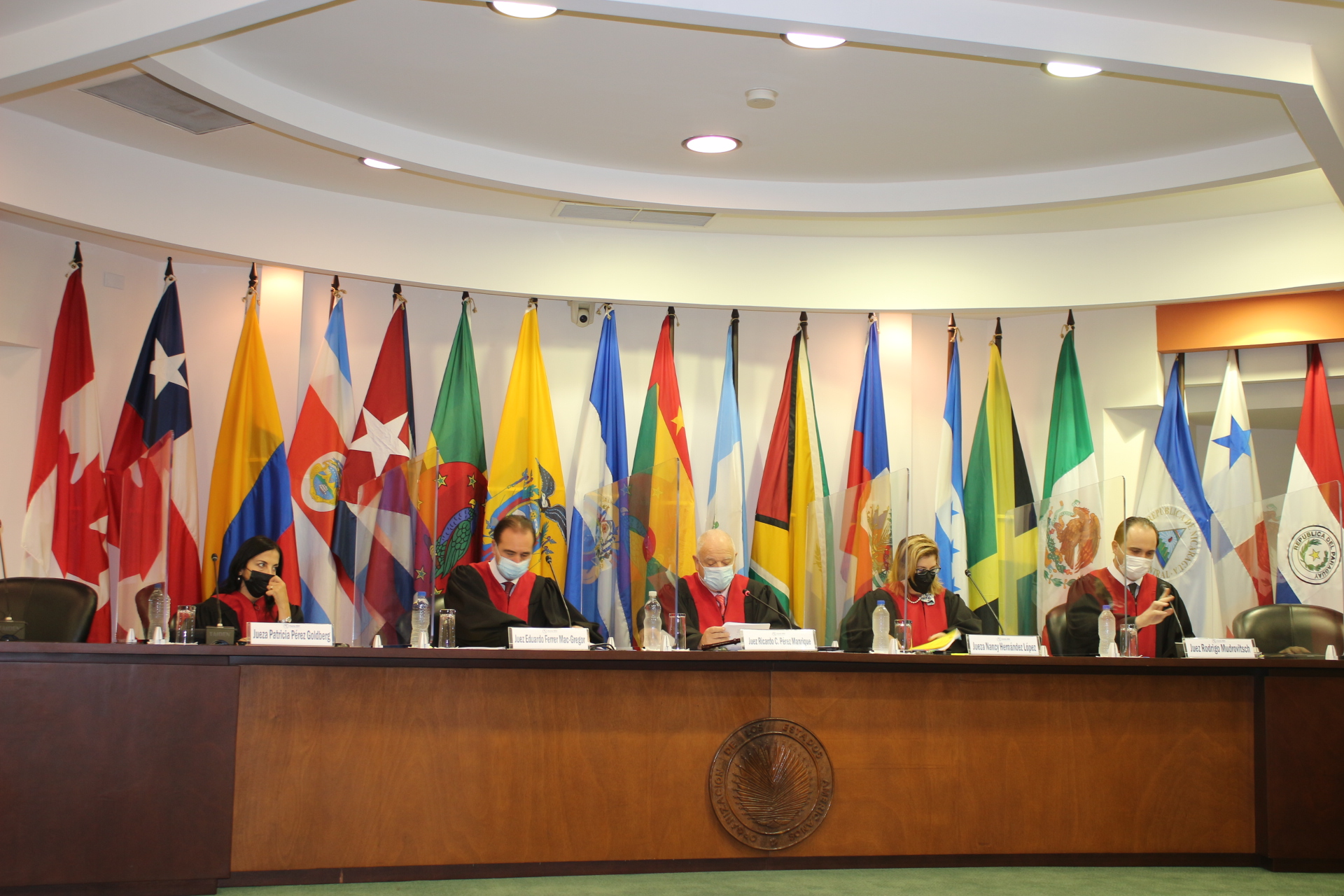Published on 14 September, the report was the subject of a debate between Council members and the UN Assistant Secretary-General for Human Rights Ilze Brands Kehris today (29 September). Despite having this opportunity to push for accountability and demand action from perpetrators, few State representatives at the Council chose to specifically call out peers that were flagged in the report.
A notable exception came from representatives of Belgium, the Netherlands and Luxembourg (the Benelux countries), who cited cases from Burundi, Belarus, and China in a joint statement. These are cases on which ISHR has been actively campaigning. The Benelux countries have been leaders in this regard, having cited specific cases at several previous Council sessions.
This year, they were joined by the representatives of Liechtenstein and Germany, who also took to highlighting specific cases, including those of members of the Belarrussian organisation Viasna, Egyptian defenders Ibrahim Metwally Hegazy and Mohamed El Baqer, and multiple activists that have faced reprisals in China. The representative of Denmark also raised the case of Bahraini defender Abdulhadi Al-Khawaja, while their counterpart from Armenia spoke about the detention of Azerbaijani activist Ahmad Mammadli. Meanwhile, Namibia’s statement included the reprisals against Palestinian Human Rights Organizations by Israel.
Regrettably, the concerned States refused to provide concrete updates or even to commit to resolving the situations highlighted by during the session.
“We welcome the principled stance from members of the Council who raised specific cases. Members of this body must be exemplary,” said Madeleine Sinclair, New York Office Co-Director and Legal Counsel at ISHR. “It is beyond disappointing that other States are not using this opportunity to stand up for victims. They are turning a blind eye as other governments seek to intimidate or silence critical civil society actors that fight for human rights”, she added.
States at the UNGA will elect 14 new members of the Council on 11 October. Nearly half of the 18 candidates in the running have been cited for acts of reprisals or intimidation against defenders that engage with the UN. They are Afghanistan, Bahrain, Bangladesh, Maldives, Morocco, Sudan, Venezuela and Vietnam.
All States should work to ensure a safe, unfettered access for civil society actors who seek to contribute to addressing urgent human rights and other challenges by interacting with the UN system. ISHR calls on voting States at the UNGA to only vote for States that support the work of human rights defenders and their vital engagement at the UN.
“We need the voices and experiences of human rights defenders from around the world. The UN loses vital information and context without them. Responsible governments cannot allow States that are deliberately preventing them from speaking up to gain access to places like the Human Rights Council,” Sinclair added.
In July 2022, ISHR launched a public database compiling 709 cases of intimidation and reprisals documented by the UN Secretary-General since 2010, which includes individuals and groups from all regions.
Throughout the 51st session of the Human Rights Council, we also campaigned for States representatives at the UN to raise several of these cases publicly, which involve individuals and organisations from China, Belarus, Burundi, Egypt and Venezuela.
On 11 October, the UN General Assembly will vote to fill 14 seats at the Human Rights Council for a 2023 – 2025 term. This year, 18 countries are running for 14 seats:
- African States: Algeria, Morocco, South Africa and Sudan (4 candidates for 4 seats: closed slate)
- Asia and the Pacific States: Afghanistan, Bahrain, Bangladesh, Kyrgyzstan, Maldives, Republic of Korea, Vietnam (7 candidates for 4 seats)
- Latin America and Caribbean States: Chile, Costa Rica and Venezuela (3 candidates for 2 seats)
- Western Europe and other States: Belgium and Germany (2 candidates for 2 seats: closed slate)
- Central and Eastern Europe States: Georgia and Romania (2 candidates for 2 seats: closed slate)




